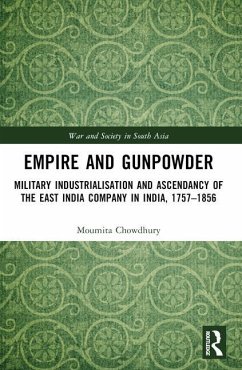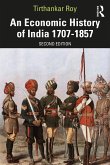This book focuses on the relation between technology, warfare and state in South Asia in the eighteenth and the nineteenth centuries. It explores how gunpowder and artillery played a pivotal role in the military ascendancy of the East India Company in India.
The monograph argues that the contemporary Indian military landscape was extremely dynamic, with contemporary indigenous polities (Mysore, the Maratha Confederacy and the Khalsa Kingdom) attempting to transform their military systems by modelling their armies on European lines. It shows how the Company established an edge through an efficient bureaucracy and a standardised manufacturing system, while the Indian powers primarily focused on continuous innovation and failed to introduce standardisation of production.
Drawing on archival records from India and the UK, this volume makes a significant intervention in our understanding of the rise of the British Empire in South Asia. It will be of great interest toscholars and researchers of history, especially military history, military and strategic studies and South Asian studies.
The monograph argues that the contemporary Indian military landscape was extremely dynamic, with contemporary indigenous polities (Mysore, the Maratha Confederacy and the Khalsa Kingdom) attempting to transform their military systems by modelling their armies on European lines. It shows how the Company established an edge through an efficient bureaucracy and a standardised manufacturing system, while the Indian powers primarily focused on continuous innovation and failed to introduce standardisation of production.
Drawing on archival records from India and the UK, this volume makes a significant intervention in our understanding of the rise of the British Empire in South Asia. It will be of great interest toscholars and researchers of history, especially military history, military and strategic studies and South Asian studies.








